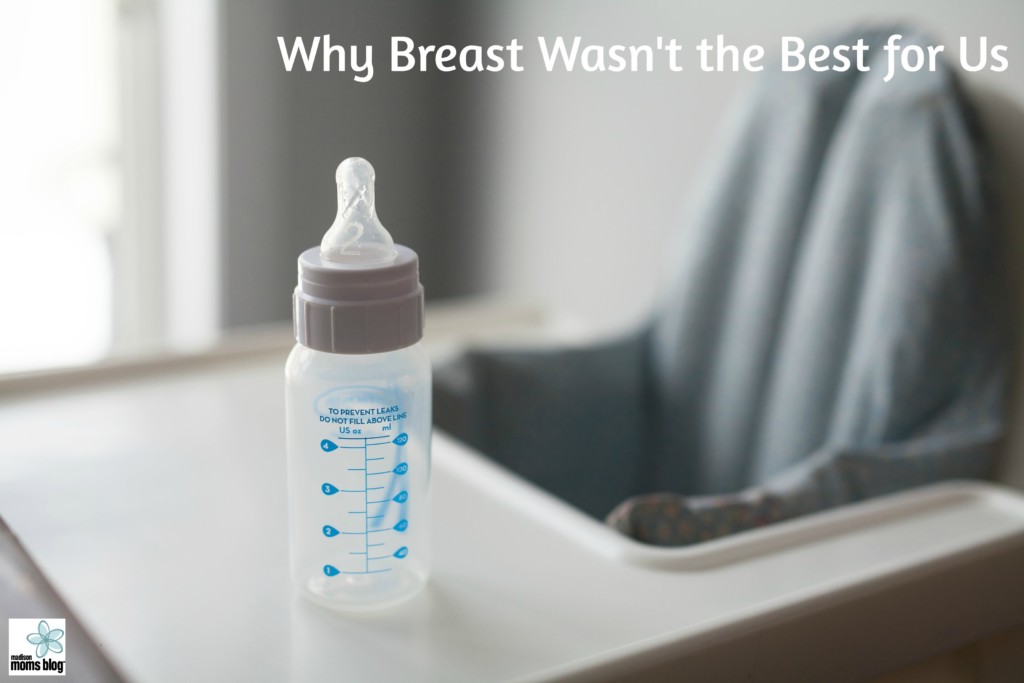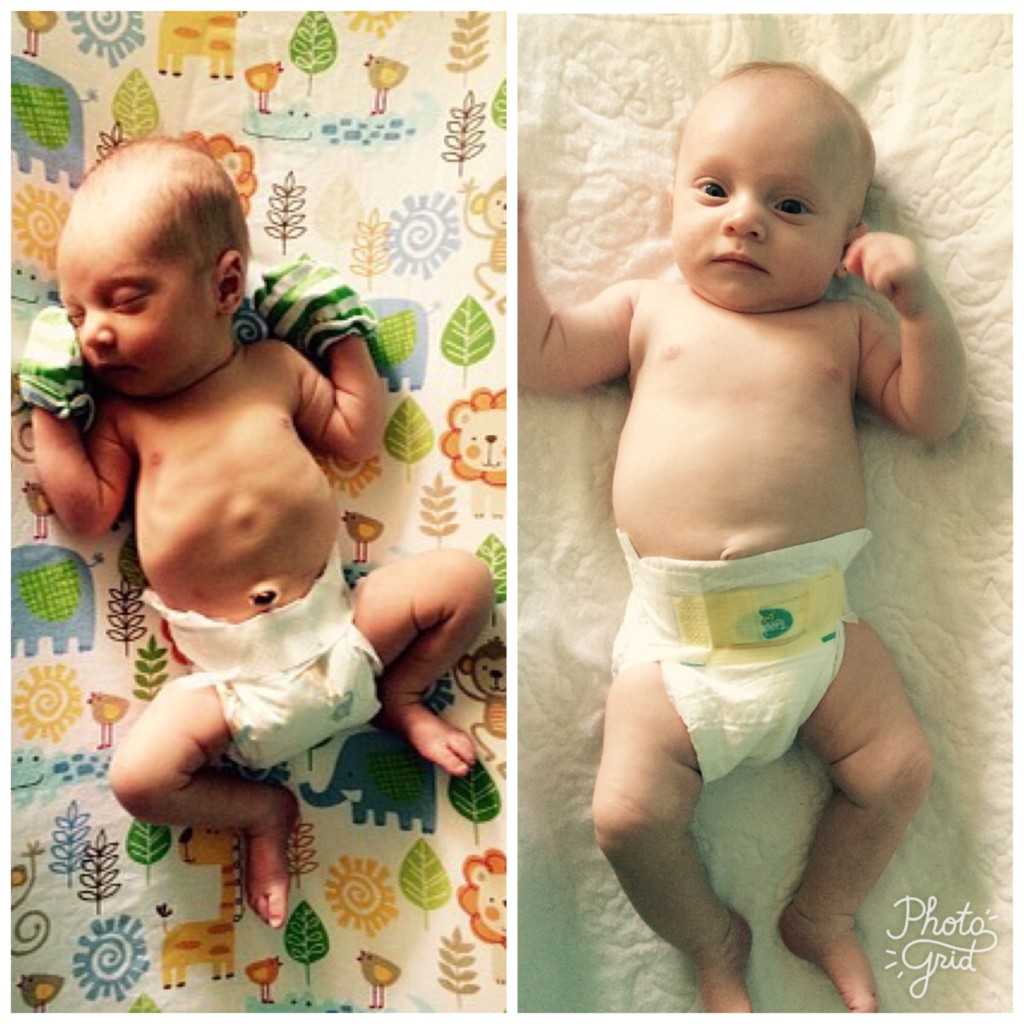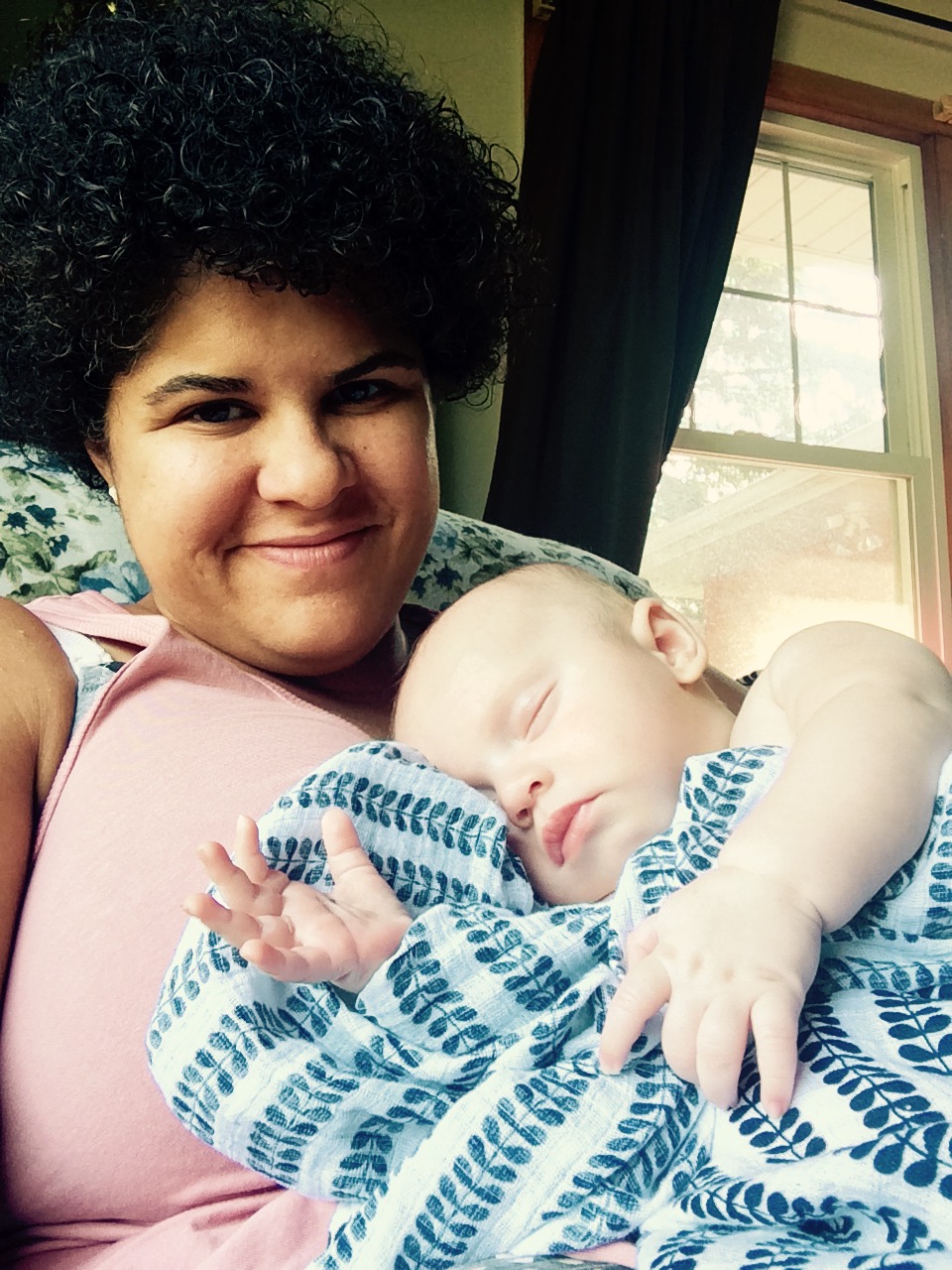 In honor of Breastfeeding Awareness Month, a friend of mine recently posted a photo of her breastfeeding her newborn daughter on Facebook. The caption posed the question: “What’s your favorite thing about breastfeeding your child?” Her question brought me back to my experience breastfeeding my now 2-year-old son.
In honor of Breastfeeding Awareness Month, a friend of mine recently posted a photo of her breastfeeding her newborn daughter on Facebook. The caption posed the question: “What’s your favorite thing about breastfeeding your child?” Her question brought me back to my experience breastfeeding my now 2-year-old son.
Breastfeeding did not come easy to me. I assumed since many people call it “one of the most natural things in the world” that meant it would also come naturally. I had planned to breastfeed as long as possible that first year. My son latched on right away in the hospital and it seemed we both got the hang of it quickly. So imagine my surprise, when at his first doctor’s appointment later that same week, we learned he had lost 10% of his body weight. Evidently, my breasts had not produced even a single drop of milk over those first few days. He’d essentially been starving the whole time and I didn’t even know it.
The doctor told me we needed to start formula right away to ensure he was getting the nutrients he needed since he’d already lost so much weight. I broke down in tears right there in the doctor’s office. Not because we had to start formula, but because I already felt like a failure in this first official task as a new mom.
The nurse sent us home with a few boxes of formula and gave us feeding instructions for the next couple of days. They recommended I continue breastfeeding “on demand” in order to help my milk come in, but to supplement with formula after each feeding to ensure he actually ate each time too.
When later the next day, I noticed a drop of liquid on my son’s lips when he pulled off my breast, both my husband and I shouted out loud and cried tears of joy that my milk had finally started flowing.
It should have been all uphill from there, but at his next check up, we learned he hadn’t quite gained as much weight back as they had hoped. The doctor asked if she could check our latch, and afterwards told us everything looked okay to her, but recommended I see a lactation consultant to confirm he was latching on properly.
We scheduled an appointment and met with a lactation consultant a few days later. I’ll never forget that experience. She basically manhandled my breast as she told me I needed to create a “nipple sandwich” for my son to latch on to. Because apparently, my breasts (and nipples) were so big, there was no way he was latching properly on his own. I was mortified, yet grateful, that she showed us the “sandwich technique” and we left feeling ready to tackle the next nursing session.
Once we got the latch right, my son was a voracious eater. I had never heard of cluster feeding, but quickly learned that some nursing sessions just never stop. I literally had no idea a child could stay latched on for hours, and actually pass out, and still not stop sucking. We started the daily cycle of eat, sleep, poop, repeat. I felt bound to the couch and was more sedentary on maternity leave then I’ve probably ever been in my whole life.

About a week after we finally got the hang of it, I yelped in pain one morning after my son latched on. He didn’t have teeth to bite me yet, so I had no idea why it hurt. He cried in protest after I forced him off my nipple so I could try to figure out what the problem was. After careful examination, I found a small white bump which I assumed to be the culprit. I called the lactation consultant and described what I was experiencing. She almost immediately diagnosed it as a “bleb”.
A bleb is a milk-filled blister or blocked nipple pore, which as it turns out, can be caused by an improper latch. The treatment process is also painful – warm compresses or soaks, followed by rubbing your nipple with a damp washcloth to try and open it up. You are also encouraged to nurse and/or pump frequently, in hopes that the pressure from the suck will help the bleb to unclog.
I gritted my teeth and followed the instructions, in order to make it work to keep breastfeeding my child. Unfortunately, that wasn’t the first bleb I experienced. I had to push through the pain of another one about a week later.
It wasn’t long after that when the acid reflux kicked in. I didn’t even know that was a thing until I started questioning whether the amount of “spit up” that followed each nursing session was normal. It wasn’t. Come to find out, my son had acid reflux and after each long nursing session, he seemed to spit it allll back up immediately following. It was a vicious cycle. We’d nurse for hours only to have it all over my lap minutes later. After several weeks of this, I was both physically and emotionally drained. And tired of being covered in large amounts of regurgitated milk.
We decided to try pumping and bottle feeding instead. Thankfully, by introducing formula so early on, my son had no trouble drinking from a bottle. But sadly, it didn’t really help. He’d still spew it all over shortly after drinking. We even tried mixing some rice cereal into the milk to bulk it up. But that didn’t seem to make much of a difference either. Though thankfully some of it must have stayed down, because by then, he was gaining weight at a normal rate.
His doctor was incredibly supportive through it all. When I finally asked if switching to formula made for acid reflux might help, she told us it certainly couldn’t hurt and even brought us a free case to bring home and try. There was no guilt. There was no shame. There was no “just keep trying”. Only patience and understanding. And empathy for what we were going through.
So, while I had originally planned to breastfeed as long as possible, for me that wound up only being four months. I gave it the old college try, but as it turned out for us, breast wasn’t actually best. After making the switch to formula, my son kept most of his meals down, gained weight like a champ, and I felt a little saner each day.
In answer to the question my friend posed on Facebook, my favorite thing was the connection I felt with my son during those few months I was able to breastfeed. I truly enjoyed holding him close and having him fall asleep and stay in my arms after each feeding. But switching to formula didn’t take that away from me. In fact, it allowed my husband to experience it too.
If you are struggling with breastfeeding, please know you are not alone. It doesn’t come naturally to everyone. And whether or not you decide to keep at it – whichever decision you make is the right one for you and your child.














Can’t believe that someone else had this same experience; I truly thought I was the only one. I’m so grateful for this article. Legend is only 6 weeks but had to be hospitalized because of this; and being a single mom, this experience REALLY added to my feelings of being the worst mom ever!! This is a “just for me” message, I needed this article….makes me feel so much better!
You most certainly are NOT the worst Mom ever!! In becoming a parent, everything is new and we have no way of knowing what’s normal and what’s not. Breastfeeding struggles are very common I’ve found after sharing my story. Each Mama, baby and family is unique so just do what you feel is best for you and your child because that is all we can do! I’m so sorry to hear that your baby had to be hospitalized and hope she is recovering well. Hang in there!